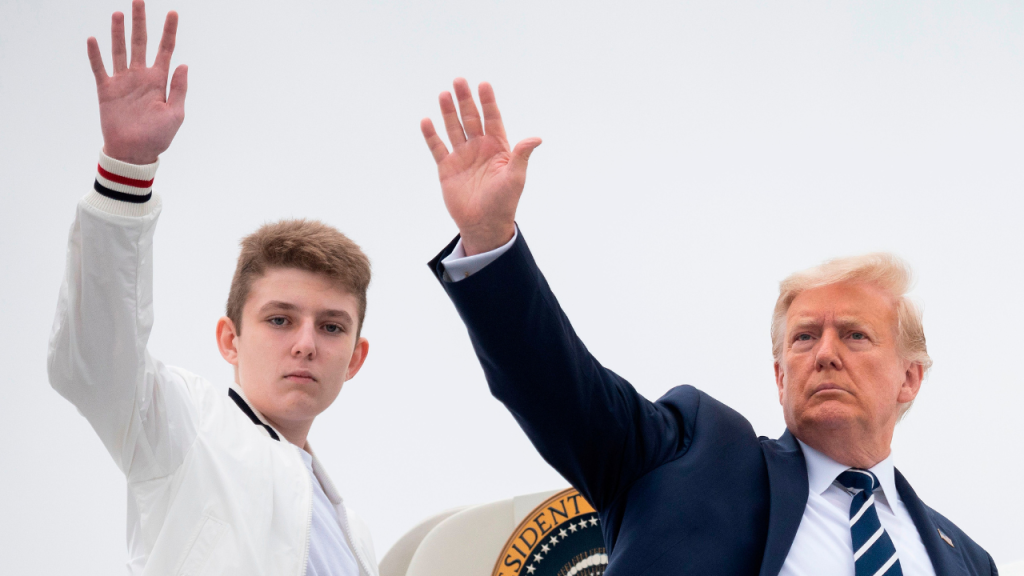Barron Trump, the 18-year-old son of former President Trump and former first lady Melania Trump, has declined to participate as a Florida delegate to the Republican National Convention. The Office of Melania Trump confirmed this in a statement to Fox News, explaining that Barron had been chosen as a delegate by the Florida Republican Party but was unable to participate due to prior commitments. This decision sets Barron apart from other members of the Trump family, such as Donald Trump Jr., Eric Trump, and Tiffany Trump, who were chosen as delegates for the convention.
The Republican National Convention is scheduled to take place from July 15 through July 18 in Milwaukee, Wisconsin. The Florida Republican Party released a list of delegates chosen for the event, which included several members of the Trump family. However, Ivanka Trump was notably absent from the list of delegates. Barron’s decision not to participate as a delegate aligns with his desire to fulfill his prior commitments, despite the honor of being chosen for such a role. This decision highlights Barron’s individuality and independence from the rest of his family members who are actively involved in politics.
While Barron’s decision is newsworthy due to his connection to the former president, it also raises questions about his future in the political arena. As the youngest son of Donald Trump, Barron was largely shielded from the spotlight during his father’s presidency. However, as he approaches adulthood, there may be increased interest in his potential involvement in politics. Barron’s decision to decline the role of delegate suggests that he is focused on his personal obligations and interests, rather than following in his family’s political footsteps.
The Trump family’s involvement in the Republican National Convention is a reflection of their continued influence within the party. Despite being out of office, the Trump family remains a prominent force in Republican politics, with several members playing key roles in the upcoming convention. While Barron’s decision not to participate sets him apart from his siblings and father, it does not diminish the overall impact of the Trump family on Republican politics. The family’s presence at the convention underscores their ongoing commitment to shaping the future of the party.
Barron Trump’s decision to decline the role of delegate at the Republican National Convention is a reminder of his more private nature compared to other members of his family. Throughout his father’s presidency, Barron was shielded from the public eye and his personal life was kept largely out of the spotlight. His decision to prioritize his own commitments over political involvement reflects his desire for a more low-key lifestyle. Moving forward, Barron’s actions will continue to be scrutinized for clues about his potential future in politics, with many observers curious about whether he will choose to follow in his family’s footsteps.
In conclusion, Barron Trump’s decision not to participate as a delegate at the Republican National Convention highlights his individuality and independence from the rest of his family. Despite being chosen for the role, Barron opted to focus on his personal obligations rather than pursuing a political path. As the youngest son of Donald Trump, Barron’s actions will be closely watched for indications of his future in politics. His decision underscores the ongoing influence of the Trump family in Republican politics and raises questions about Barron’s own aspirations in the years to come.


